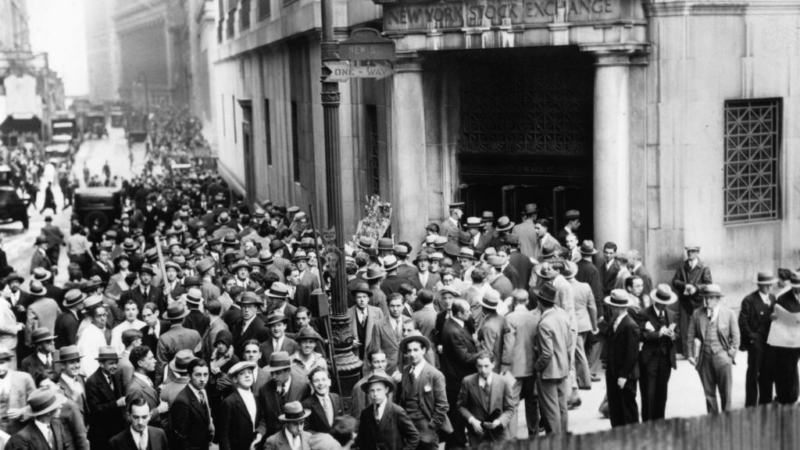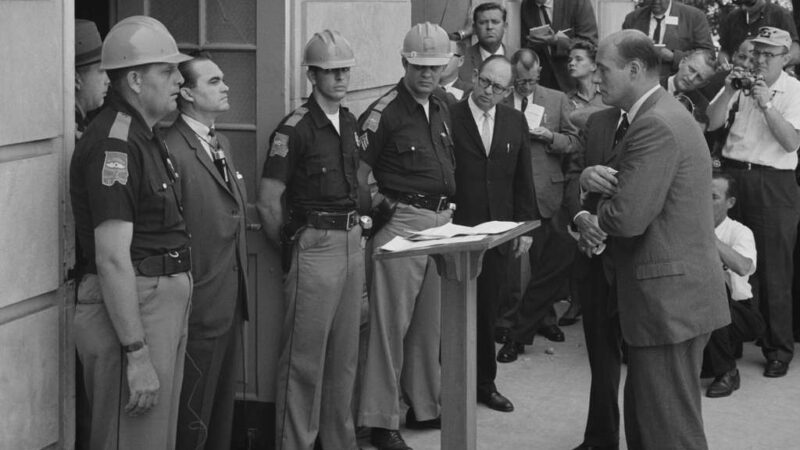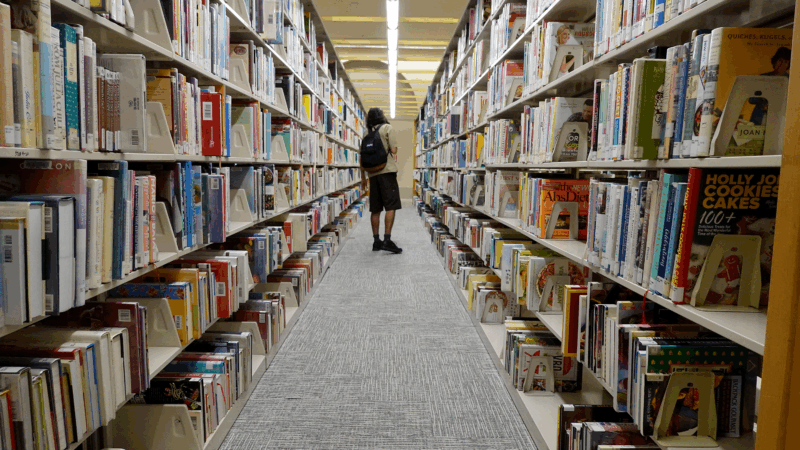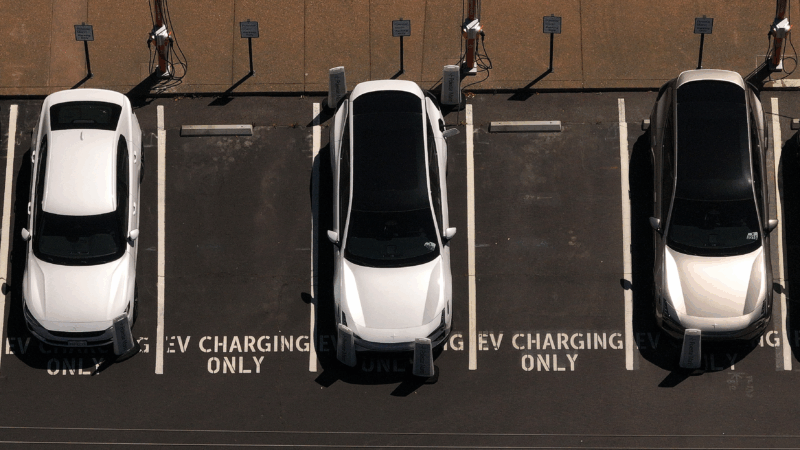Did tariffs contribute to the Great Depression? Here’s what to know
President Trump’s new tariffs on Canada, Mexico and China have unsettled both domestic and international markets, concerning investors and manufacturers.
Canada and China this week announced retaliatory measures after Trump’s long-promised tariffs took effect. The tariffs include a 25% levy on most imports from Canada and Mexico, with an additional 10% tariff on Canadian energy exports. Tariffs on Chinese goods have been increased from 10% to 20%.
This emerging global trade war has raised concerns that consumers will bear the brunt, potentially leading to higher prices on everyday goods.
There are also fears that the tariffs could trigger an economic downturn reminiscent of the Great Depression nearly a century ago.
Posts on social media have claimed that tariffs caused the Great Depression. And clips from the movie Ferris Bueller’s Day Off featuring an economics teacher, played by Ben Stein — an economist and speechwriter for U.S. Presidents Richard Nixon and Gerald Ford — have gone viral. In these clips, he lectures students about the effects of tariffs during the Great Depression.
Here is what to know about what caused the Great Depression.
Was it caused by tariffs?
The Great Depression was a catastrophic economic downturn that began in October 1929 and lasted for nearly a decade. It is considered one of the worst economic periods in history, with a peak unemployment rate that included an estimated 12,830,000 persons out of work in 1933 alone.
Other countries including Germany and Britain also suffered economic declines during this period.
While the U.S. has imposed tariffs on some imported goods since the late 1700s, did tariffs cause the Great Depression? “Certainly not,” says Gary Richardson, economics professor at the University of California, Irvine and former historian of the Federal Reserve System.
“The depression started when tariffs were low. So the tariffs or the thought of having tariffs were not a cause of the Great Depression,” Richardson tells NPR.
In the early 1900s, the U.S. government transitioned toward a free trade system and adopted federal income taxes in 1913, which helped reduce the government’s dependency on tariffs.
And the Smoot-Hawley Act Tariff Act, named after Republicans Oregon Rep. Willis Hawley and Utah Sen. Reed Smoot, implemented high tariffs that reached nearly 60%. But this act was not signed into law until June 17, 1930, months after the Great Depression had already started.
So what caused the Great Depression?

A number of factors contributed to the Great Depression, economists tell NPR.
During the 1920s, known as the Roaring Twenties, the economy was growing and the stock market was thriving.
But the Federal Reserve, created in 1913, raised the discount rate — the interest rate charged to member banks borrowing money, explained Marcus Witcher, an assistant professor of economic history at West Virginia University. According to Witcher, as a result of the Federal Reserve’s policies, the money supply contracted. This meant there was less money in circulation, making it more difficult for Americans to obtain credit either for purchases or to start or expand a business. This led to an economic decline that triggered the stock market crash in October 1929 and caused more than 9,000 bank failures between 1929 and 1933.
Not only did President Herbert Hoover sign the Smoot-Hawley Tariff Act into law despite objections from economists during an already fragile economic period, he also enacted the Revenue Act of 1932, which increased income tax rates from 25% to 63%.
“Hoover increased the taxes because he thought it was important to balance the budget and saw tax increases as the only way to achieve that. As a result, he didn’t balance the budget and further disincentivized economic activity,” Witcher tells NPR.
A combination of these factors resulted in a “perfect economic storm” leading to a domino effect that exacerbated the economic crisis, says Christopher Clarke, an economics professor at Washington State University. The tariffs implemented under the Smoot-Hawley Tariff Act worsened the Great Depression, Richardson, Clarke and Witcher say. These tariffs also strained relationships with other countries beyond the realm of trade.
“Less trade leads to less cooperation and less trust, which will lead to more violence,” Clarke says, adding that strained international relations were contributing factors to World War II.
Is it possible this new trade war will lead to another economic depression?
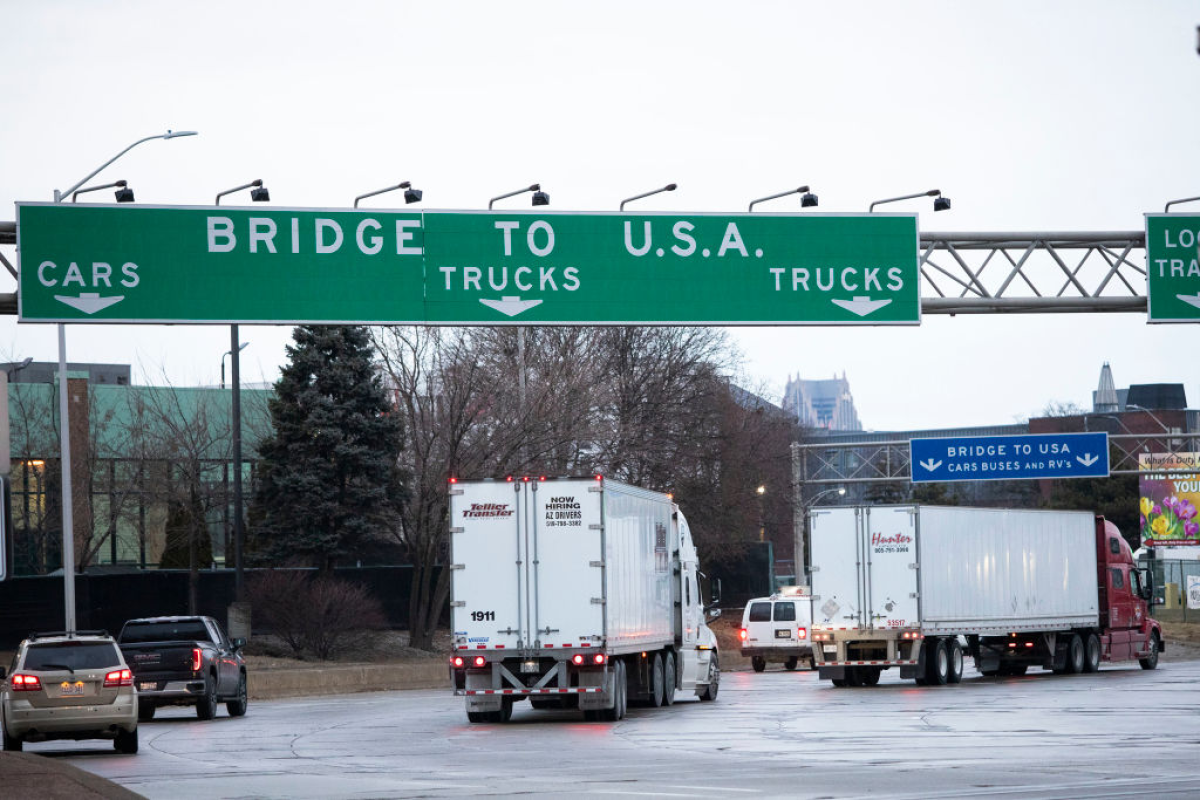
The impact of the latest tariffs on the economy remains uncertain. However, economists say that the current economy is in a better position than it was during the Great Depression. While it’s unlikely that the new tariffs will trigger a depression, they could lead to an economic slowdown with higher prices resulting in consumers cutting back on spending, according to Clarke. Witcher also said the tariffs could impact jobs.
“The Great Depression was a singular event in our history, so I think it is unlikely that Trump’s 25% tariffs lead to an economic calamity on that scale,” Witcher said. “But a 25% tariff will definitely make us poorer. It will not save many jobs and will likely result in net job losses in related sectors.”
During his address to Congress on Tuesday night, Trump said that more tariffs, including reciprocal tariffs, would go into effect next month on April 2.
“Whatever they tariff us, other countries, we will tariff them,” he said. “Whatever they tax us, we will tax them. If they do non monetary tariffs to keep us out of their market, then we will do non monetary barriers to keep them out of our market.”
The tariffs being implemented by Trump are historically high, similar to tariffs imposed during the Great Depression, and the tariffs could get higher, Richardson says. But the circumstances differ significantly, particularly regarding who is imposing them.
“The tariffs of the 1930s were imposed by the U.S. Congress,” Richardson says. “This is Trump’s signature move and he is personally going to bear probably almost all the blame if things go wrong.”
The economists did not provide any positive outcomes regarding the tariffs. As one economist put it, tariffs are like a game of chicken, where each side waits to see who will back down first. When one country imposes tariffs, the other retaliates, creating a cycle of escalating measures.
“The people imposing the tariffs first, which in this case is the U.S., were kind of saying, ‘Yeah. We understand this could go really wrong, and everyone could suffer. But we’d rather have everyone suffer than the current state of the world. So, if you don’t want everyone to suffer, if you don’t want to suffer, you got to give in to us.’ ” Richardson says.
Witcher, Richardson and Clarke all agree that the new tariffs could have negative implications for the economy.
“Any way you look at it, a 25% tariff is bad economic policy,” Witcher says. “There are very few winners and many, many losers from such a policy. Combined with other factors, such as declining consumer confidence, interest rate increases, etc., they could contribute to a recession.”
NPR’s Maria Aspan contributed to this report.
How George Wallace and Bull Connor set the stage for Alabama’s sky-high electric rates
After his notorious stand in the schoolhouse door, Wallace needed a new target. He found it in Alabama Power.
FIFA president defends World Cup ticket prices, saying demand is hitting records
The FIFA President addressed outrage over ticket prices for the World Cup by pointing to record demand and reiterating that most of the proceeds will help support soccer around the world.
From chess to a medical mystery: Great global reads from 2025 you may have missed
We published hundreds of stories on global health and development each year. Some are ... alas ... a bit underappreciated by readers. We've asked our staff for their favorite overlooked posts of 2025.
The U.S. offers Ukraine a 15-year security guarantee for now, Zelenskyy says
Ukrainian President Volodymyr Zelenskyy said Monday the United States is offering his country security guarantees for a period of 15 years as part of a proposed peace plan.
Genre fiction and female authors top U.S. libraries’ most-borrowed lists in 2025
All of the top 10 books borrowed through the public library app Libby were written by women. And Kristin Hannah's The Women was the top checkout in many library systems around the country.
Electric vehicles had a bumpy road in 2025 — and one pleasant surprise
A suite of pro-EV federal policies have been reversed. Well-known vehicles have been discontinued. Sales plummeted. But interest is holding steady.

